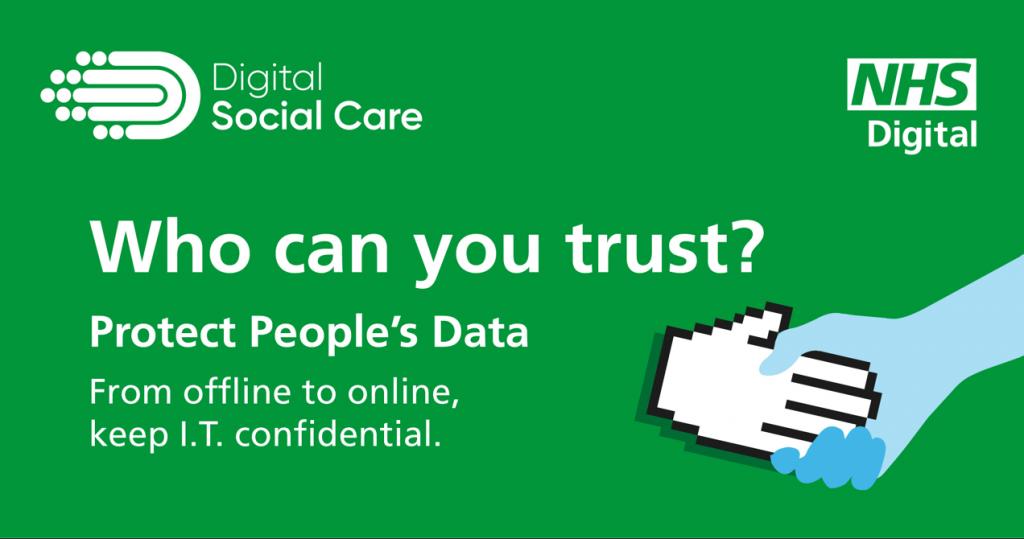
November 23rd 2022
Financial abuse is explicitly acknowledged in the 2014 Care Act as a safeguarding issue, and in 2020/21 there were over 28,000 safeguarding enquiries relating to financial abuse.
Financial abuse comes in many different forms, one of which is online fraud and scams. In the run up to Christmas, crimes of this nature increase and people accessing care services represent a particularly vulnerable group who may not have the knowledge or capability to protect themselves. The Office of National Statistics (ONS) have previously published data which shows the average age of a victim is 75 years old.
Research into online scams by Bournemouth University explains how criminals work hard to develop manipulative tactics including skilful language design which mimics the type of language used in domestic violence and other abuse crimes. This language is used to make behaviour and requests seem reasonable and trick the victim into feeling as if they are making informed and rational decisions relating to their finances. For example, in a postal scam offering a ‘great opportunity’, the scammer will increase pressure by stating a time limit and indicate that the victim must take urgent action otherwise risk losing out on the ‘opportunity’. The scammer does not specifically mention money and uses the urgency of the ’opportunity’ to attract the victim.
There are many different ways that scammers will attempt to target a victim online, and we’ve written about some of the most common methods that occur across the winter season. Scammers have many different strategies for identifying vulnerability in their victims, but as research by Bournemouth University has found, most methods rely on evoking emotional responses to gain a victim’s trust:
- Urgency – a scammer will make urgent appeals in attempts to make the victim feel like they need to respond instantly i.e. by provoking fear if you don’t act instantly.
- Secrecy – a scammer will make requests for secrecy to avoid the likelihood of friends and family intervening.
- Indirect requests for money – scammers will attempt to disguise requests for money, such as promoting a ‘great opportunity’.
- Authority – scammers will pretend to be figures of authority usually trusted by victims.
- Active participation – victims are lured through phased activity, for example beginning by ticking boxes to filling out forms. They will invest time and money which makes them more likely to commit to the relationship the scammer has created.
- Grooming – scammers will create false rapport and friendships based on ‘similarities’ they have with victims.
Once a victim’s trust has been gained it can be difficult to convince them otherwise as the scammer may have already identified and exploited a vulnerability. It’s important that you are able to spot when you think someone in your care is being scammed and know what to do if you have concerns about a client’s online safety.
How to spot if someone you care for is being scammed
Online fraud can be difficult to spot, but there are some indirect indicators that could merit bringing up a discussion with the person in your care:
- They have large volumes of letters and junk mail, some of which is from abroad.
- You notice the phone always seems to be ringing or the person is receiving phone calls from unknown businesses and individuals.
- They have a lack of money to buy things you would expect them to be able to afford.
- Evidence of suspicious large payments or they are unusually reluctant to explain an expense or payment.
- They have large quantities of cheap goods in their home.
What you can do as a care worker or manager of a care service
If you have concerns about a client’s online safety, there are some things you can do to help:
- Have a conversation with the person in your care about the different types of scams and methods used to gain a victim’s trust. It’s always worthwhile raising awareness even if they haven’t been scammed, and starting a casual conversation on the issue could lead them to open up to you.
- If you suspect a person you care for is being scammed, under the 2014 Care Act, you have a legal obligation to report your concerns.
- If you know they have been scammed, you should also support the person in your care to report the scam to Action Fraud, or with their consent report the scam on their behalf.
- Don’t forget that the person could be feeling very confused and upset about what has happened. Offer them your support, let them know that they aren’t alone and that many people go through similar experiences. Be patient with them and if necessary encourage them to tell their family so they can receive emotional support.
Further information
- This week is Safeguarding Adults Week, visit the landing page.
- Bournemouth University research on Financial Fraud Awareness.
- AGE UK support for scam victims.
- Report a scam to Action Fraud.